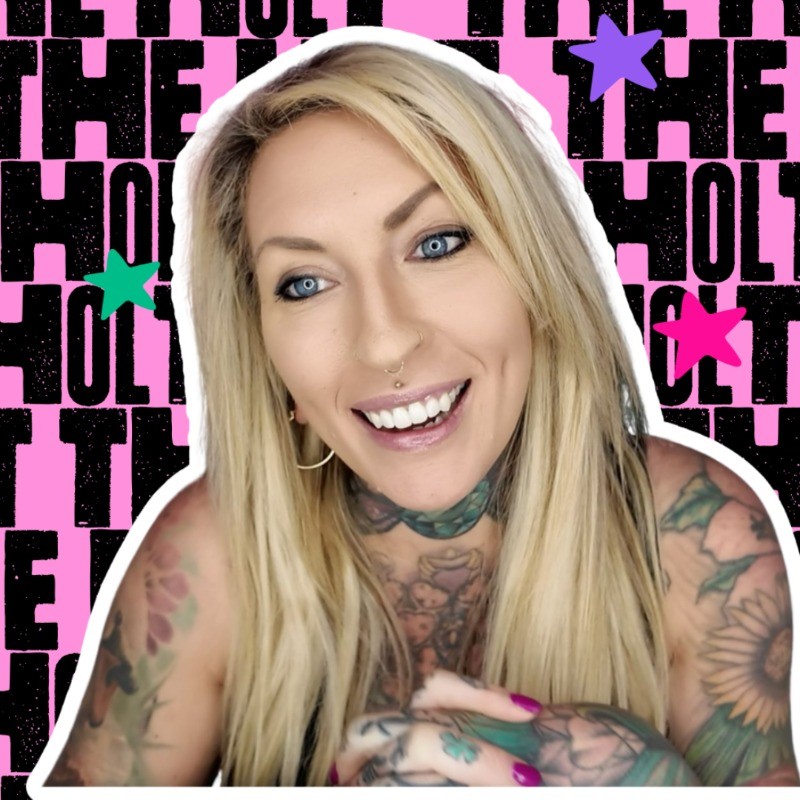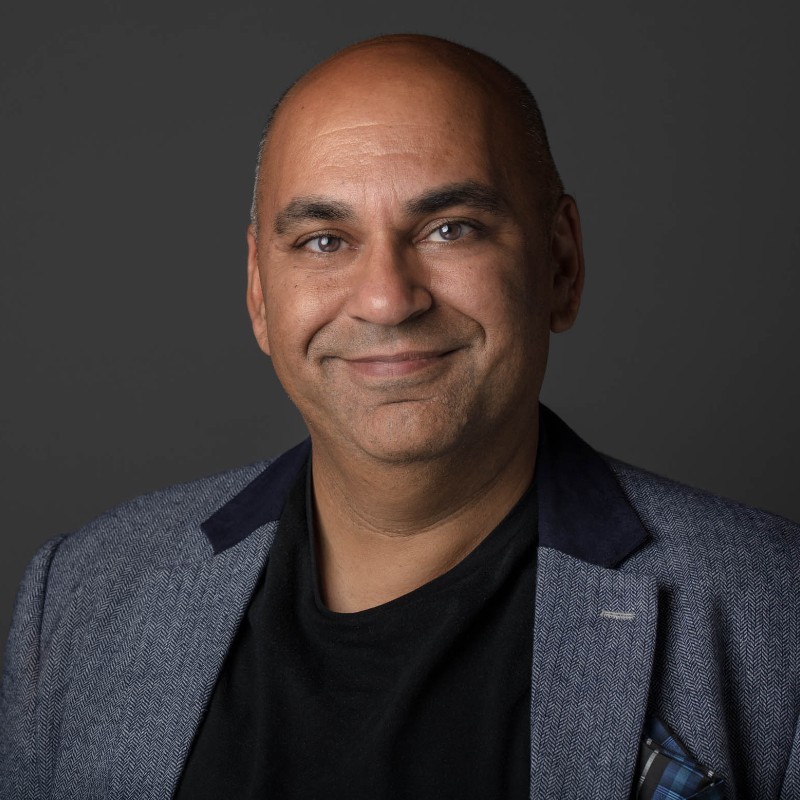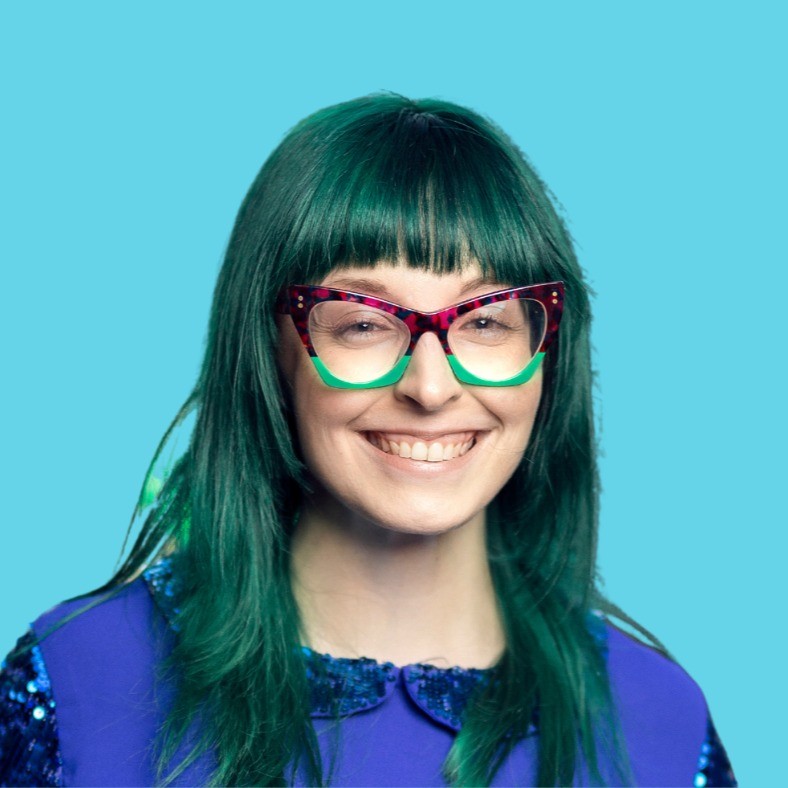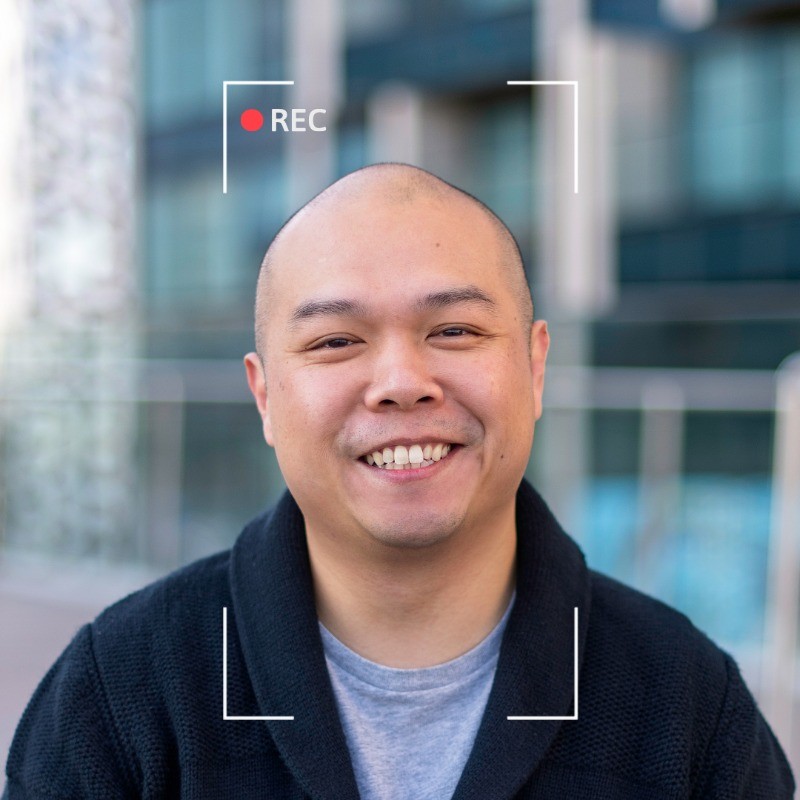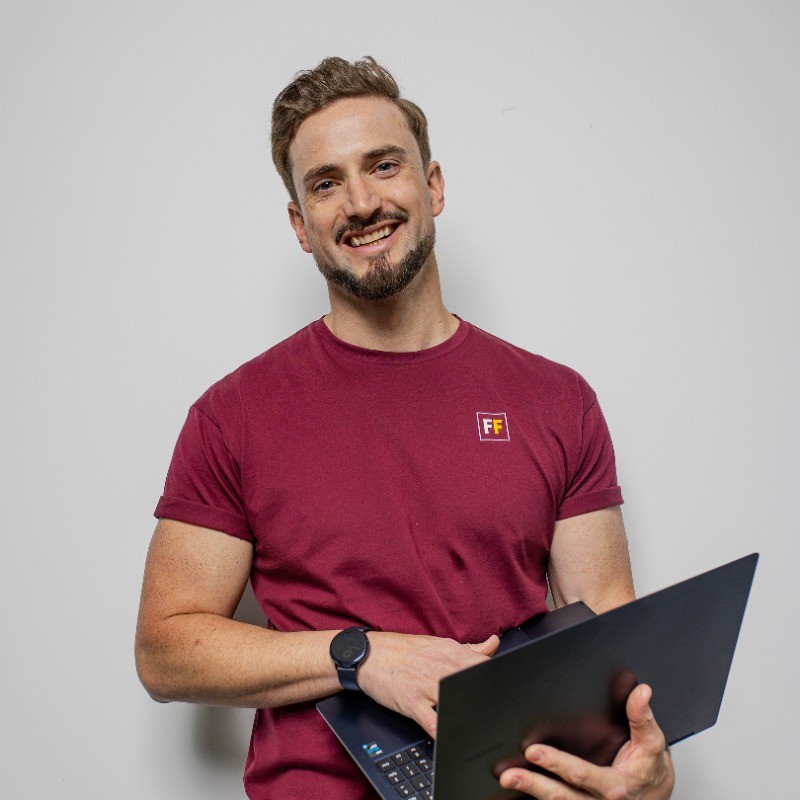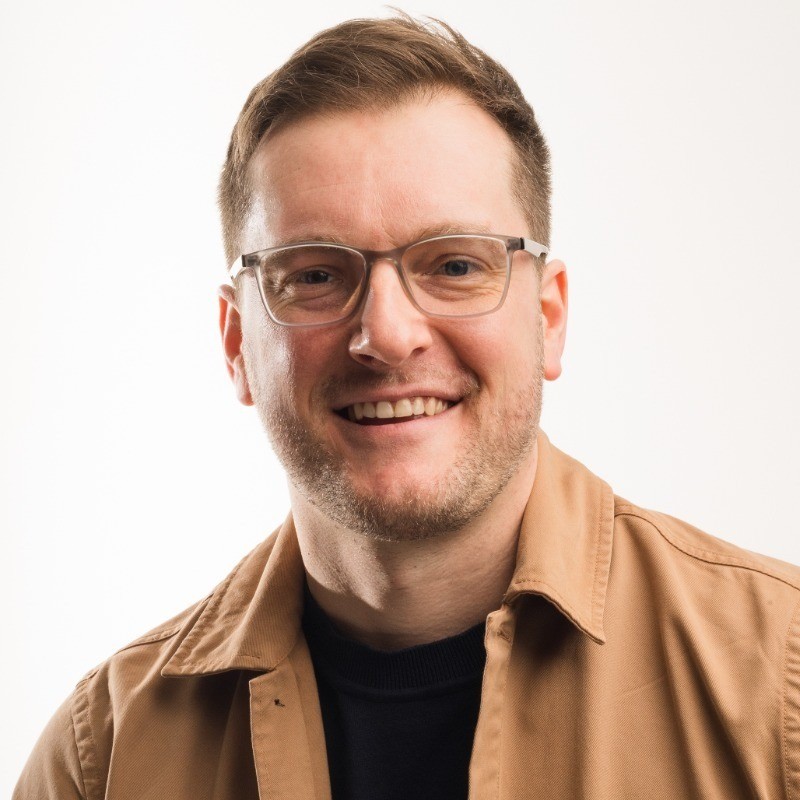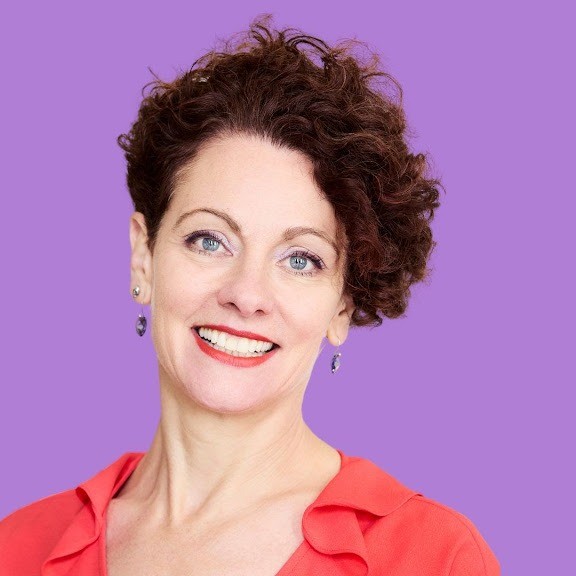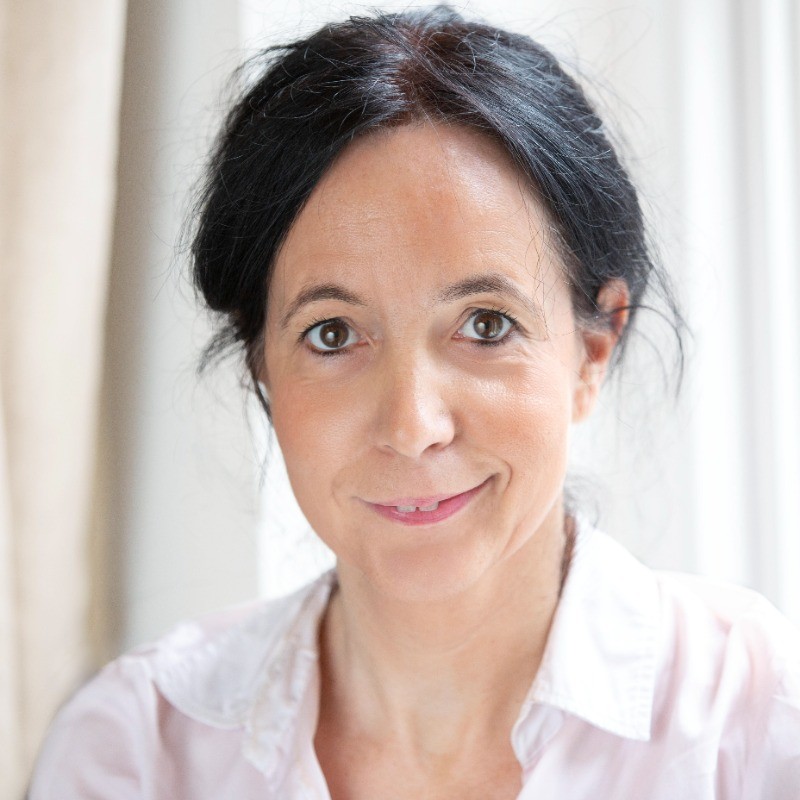B2B My Guest with Timea Kadar
Charli Hunt: Timea, thank you so, so much for being on the podcast. We're so excited to have you. Can you do a little introduction for our listeners?
Timea Kadar: Thank you, Charli I'm also very excited about that. A little introduction. I want people to think of me when they need anything. Because using my network, the people I'm connected with, I will find a solution. Not necessarily something that I do, but will know somebody who they can trust. And this is really for me a goal, that people when they need something, Something needs somebody, they know that "Oh, Timea can help through the network".
This is basically what I do.
Charli Hunt: You're so the person that's there for everybody. You know everybody and you're so helpful to everyone. I don't know how you get everything done in the day that you, you
Timea Kadar: I don't do.
more than anybody else, Charli. I just write probably more about it.
Charli Hunt: Maybe that's true. That's a really good starting point. For people who find it hard to find things to write about on their social media, what tips would you give them to get started?
Timea Kadar: It's a very good question. And I tried a few, techniques with people who really find it hard. One of the things that I've found in working with them is that forget that you're writing for social media because first of all, this is the thing that stops people, that it's going to be published, others will read it.
So it's not going to be on social media. You just write about stuff. What to write about? Also, here, I previously had some content calendar, and then I realized that it's not easy for those people who are not familiar with this kind of content creation. So, now I'm asking people to identify their core values, because this is everything we think, do, even how we feel about things, is rooted in our core values.
We don't have to create our core values. Those are there by our upbringing and how we develop ourselves. So it just takes some reflection to focus on the main ones. It doesn't mean that other values are not important, but some core ones. And once they do that, then I have my core values.
Just pick one and write everything that makes you tick about that, that you are passionate about it and everything that drives you mad. So all the things that you don't like relating to that core value in the world and in your industry, in your competitors and why it's important for you.
And then it is not about social media. And just an example, what I, one of the core values for me is really commitment, On the positive side, I have a, I can give examples why it's important, how it helps business, how to work on it, so I can write a lot, lot about it. And just recently I had a post related to it, which was my parents' 50th anniversary.
So I didn't only post it to have a post and get the likes, but it really connects with this core value. And on the negative side, I could write a lot about what freaks me out when people don't show up, cancel things, and what the impact of it and how it ruins their personal brand. So this is an example of how to link it back to your core values, something that is in you anyway. And just write about things that bother you and things that make you passionate and really make you sit up and make you jump out of the bed.
And then it's much easier to write about these things initially than following content calendar and knowledge base. I found that it's sometimes harder for people. So this could be one ways to try.
Charli Hunt: Oh, I really like that. That's brilliant. We talked a little bit about online networking. We haven't really talked about offline networking.
So you're really good at both of them. Do you think you need to do both of them?
Timea Kadar: I think that we are really in a very lucky position that we can do both and a combination of both because earlier we used to be able to do only offline and then there were two years when only online and a combination of both is the most efficient. Taking the advantage of offline networking, which is really the, the whole experience that we share.
the whole 3D experience. Which really matters. And this is why people say that, "Oh, it's so good that we can meet in person". On the other hand, online networking makes it really more time efficient, so we can meet more regularly than otherwise we could because of our diaries. We can meet from other parts of the world.
And it's also very good for a little bit of a pre qualification meeting before we would meet someone in person. And it's also good for follow up after an in person meeting. So I think that these two really, really work together and support each other. But I also would like to define what networking means to me because it's different from what most people think about it. For most people,
networking labeled as networking, those activities, those meetings, when we say that now we do networking, now we go to that event and I have the pitch and I do it. Networking for me is any interaction. I do during the day, online and offline. So it could be something when we arrive at a meeting and before the meeting starts or before the host arrives, that a chair arrives, what I do in that five minutes, am I just switching off my camera and finishing something?
Timea Kadar: Or I use that opportunity to connect with the others. And it's not just potential clients. It could be my colleagues, my team members. Am I using the interaction, the opportunity when I interact with them to build that relationship? So that is what networking is for me. To use all those interactions.
Even in an email, somebody has a birthday or an anniversary of their company. And am I commenting happy birthday, which is the minimum, which is not really building. Or am I adding something that I really value that person, which is then building that relationship. Networking doesn't have to be separate,
labeled as networking and running around repeating my pitch. And in this way, yes, both work very well and both support each other.
charli-hunt_2_08-11-2024_165948: How do you articulate what makes you, you? And how do you keep that running through all of your networking and your LinkedIn posts and other social media?
Timea Kadar: Once again, core values are really important. And core values are not simply empty words. These mean a lot. And core values make you you. And that will be something that you always keep going back to when you have to ask yourself what I write about.
What makes you, you? Many, many, many things. So when we talk about personal branding or what makes you, you, we often get this tip that just be yourself. Be authentic. Just do you, right? Or personal brand is something you don't have to do because just who you are is your personal brand. And yes, there's truth in these sayings, definitely.
But we have many roles in private life and in the professional life. And in these roles, we all emerge, we have various stages, and we have various moods. I can be frustrated, joyful, excited, and many others, right? So it's a lot of things. So what makes me all of these things, right?
Shall I then talk about all of these things? No. So if I'd like to demonstrate it. Imagine going to an exhibition of a person, doesn't matter whom . Imagine that you arrive at the exhibition and there are piles of photographs from that person and objects, documents everywhere, scattered around.
Everything is from that person. Imagine how overwhelming it would be to go through that material to find out who that person is. It would take a lot of effort. Whereas, imagine arriving at an exhibition of a person and being led through a curated
experience where you are given the right type and right amount of information exactly at the time when you need it. And by the time you finish the exhibition, you have an idea of that person without having to make a lot of efforts to research about them. And the best exhibitions, the best curated exhibitions don't share with you all the information that the researchers have.
So I would say that, yes, what makes you, you is really important and you really have to curate that experience that you show to people as part of your personal brand. Basically, your personal brand is a curated exhibition then, of yourself. And it doesn't mean that you should pick only the positives.
So no, pick the failures, you can have rants, you can have things you dislike, but those are all curated and not just ad hoc whatever comes to your mind, but something that really supports your goals. So, in my case, a very important role in my life is being a mother, and I have a lot of feelings, thoughts, and I've changed, because of being a mother.
I rarely talk about that. So my curated exhibition does have a section about it. But it's not focusing on it because it's not what would support my goals. I hope it's not through theory because of course you have to sit down and write everything that makes you, you, but then be able to curate that experience that you will actually show to people.
charli-hunt_2_08-11-2024_165948: It's always when I'm scared to hit post that my content resonates with the most people. But I also have to be careful not to be too vulnerable if I'm still finding something a bit, if I haven't processed something yet, it's not something that I can share on social media yet.
Timea Kadar: Exactly. One of my best posts now again is about that when I opened up about being rejected and how it feels. So that really helps. But then again, You have to choose what you are vulnerable about and how it fits in. It's not just for the sake of likes and for the sake of bringing it up.
And there's going to be always, when you say be authentic, there are always going to be things I would never talk about. Even when we talk about failures or rejections. It's important to, to curate that experience.
charli-hunt_2_08-11-2024_165948: You're so right. I think it's finding that balance between sharing the failures that helps us all feel like everything happens to everybody and nothing you do is ever that terrible.
And just not sharing too much.
Timea Kadar: Sometimes I'm even thinking shall I share, but when you get the feedback that it helped people, then you're really happy that you did that. So sometimes it's good. And there's the same about rants. Or articulating things we don't like.
It's not a good idea to rant about everything and anything. It doesn't give a good impression. Some people do that, and it can be really refreshing to see something like, Okay, I have some things that I disagree with, and I'm standing up for. But it's not everything. Even if I have an opinion about more things than I would discuss as part of my
personal brand or on my social media.
charli-hunt_2_08-11-2024_165948: Yeah, there are definitely people who just talk about what they hate on social media, and I'm not sure how they get any business from it.
Timea Kadar: Yeah, exactly. Agree with you. These will be the people we never really know what they do. So these will be the people. Oh, yeah, they're always there, but we're not really sure what they do. And also, if somebody doesn't like anything, it's a bit of a, you know, a flag.
charli-hunt_2_08-11-2024_165948: A lot of people struggle with working on their personal brand and weirdly personal branding has a bad reputation. It has a bad brand.
Do you think everyone should work on building their personal brand?
Timea Kadar: Yeah, I hear that a lot as well. I think personal brand doesn't have a good brand, but good reputation, which is funny. Only those people have to work on it who have interactions with others. If you have interactions, then you would like to have an impact on that person or you would like to build that connection in a way, even if you're in-house, you will have a project to work on, you will have the support of that person at some point, you would get some, you would want to get some promotion, you would want to get some support, even in-house, and your personal brand will matter.
Probably just this way of putting it- working a personal brand. It makes it feel like it's overwhelming. But yeah, of course, everybody has to. And again, yes, you can be yourself. So just going back to what I said, it doesn't mean that you always have to concentrate on, Oh my God, what I'm at, what I'm saying now, but it's just being more conscious.
I'm meeting someone and we are spending one minute in the lift. Or in a cafeteria. Am I just saying, Hi, how are you? How are you? Fine, thanks. Bon appetit. And then I'm taking my mobile and scroll through. Or will I use that few minutes to make it more memorable for them?
To find out more information about them that I can use. I very often simply ask about if it's a colleague, I finding out not just, oh, was the weekend good? Yeah, it was good. What they did, I find out about their kids, their dog. The name, and next time I will ask about the kids by their names or the dog by their names.
And it's like, Oh God, you remember that. And that is personal brand in a way because it shows how much you care and they will remember that. So it's not something very theoretical that we do in a lab where we work on our personal brand. So it's simply like this. That's caring for the person instead of just scrolling our mobile, really.
And yes, it's important, unless somebody is on the moon by themselves, then probably not.
charli-hunt_2_08-11-2024_165948: I really love that. I have a friend who I've known since I was 11. So since we started secondary school and she is amazing at writing thank you letters to the point that she got her first job from writing thank you letters when we were like 11. So she's always written them to everyone's parents when she's been to stay or anyone who's sent her anything.
And one of our friends, mom was so impressed that she was like, I want to hire someone like Gabby as my PA. And she's the Head of People for Nando's. So straight out of uni, Gabby just had a job because she's amazing at sending thank you letters.
Timea Kadar: So personal brand is really everything. I just, let me just add this that. How quick you get back, how often you cancel something and how you cancel it, how you congratulate someone. Do you congratulate someone? What is in your email signature? So it's, it's really everything, how you behave really.
It's not like what, not only what you post or say. So it's a very good example. If I have Charli always gets back to me right away, then you have this personal brand of being very reliable and knowing that, Oh, if Charli hasn't got back, then something bad happened, you know? And also once you don't get back or make a mistake or forget something, it's much easier to forgive you or to say that, yeah, you've always done that.
It's all right that once you didn't, as opposed to when you regularly do that. So yeah, it's, it's a, it's a very good example indeed.
charli-hunt_2_08-11-2024_165948: Do you think you need to be well known for one thing or is it possible to be known for a few different things?
Timea Kadar: Very good question. And actually, if we are not newborn babies, which most of ours not we have experience from more areas and we are also active in more areas. It can also be just that we have a job and a charity or a volunteer position. I made an experience just to demonstrate how it works. I went to a networking event where I haven't known anybody, which is fun, but I did that. And then I went around and, deliberately introduced myself, listing four or five of the things I do. So I told them that, I'm teaching at the university. I'm an event organizer for London Business Society. We are also giving strategic marketing advice from Francis Cooper. And I wrote a book, "The USP is You". Okay. So I just listed it. You can say it within a minute. And then later on. I went back trying to find the people who I previously talked and I asked them if they can remember what I do.
And I got back all sorts of combinations like, oh, you do marketing for a university or you're an event organizer Oh, you publish some book. And some of them even remember things I didn't say that I'm a solicitor, you know. So
Timea Kadar1: this is
Timea Kadar: the perfect proof, and this is why I did it, that if you list more than one things at once, it's not in your control what they will get out of it.
And in more cases than not, they will not remember exactly what you've just listed, but they will get a mixture or the brain will be so frozen by this that they won't remember anything. So it's not a good idea to list everything at once. And on social media and also networking, you should position how will I want to be known in this circle. You can change your positioning if it's various circles. And you can make a difference there or what I would recommend as a marketer to do campaigns. So I'm thinking in campaigns like any company. They have the Father's Day campaign. So I'm thinking of campaigns. What am I doing now? Now I would like to grow the membership of the networking group. I will talk more about it. So it really depends on the people I talk to, but also my goal. It's very hard if you're always jumping, positioning yourself, this, this and that. Even on social media, it's quite hard. It's then better to have various Instagram pages. And then on your LinkedIn you can focus on the thing that is more important for you at that moment. So I might have my charity. We are doing a fundraising for my charity. I might then focus more on that aspect. If it makes sense, but definitely not. And I hear this a lot at networking events, listing all the things that you do. That's a very bad idea. And I know it's hard for people because you have this opportunity of, okay, I met someone, I really have to list everything and they will pick the one that relates to them. No, they will be frozen. So just one. There's even that book,
Timea Kadar1: One. That's a very good book.
And that talks about this idea of when you position yourself, then you are mentioning one. And this is obviously the point of niching, which is always like the number one high ticket funnel point. Niche down. I would rather say that be strategic on. Who is there? And what is your campaign at that moment? What are you focusing on the most out of those five roles?
Charli Hunt1: So when you did your test, do you measure anything else when you're networking? So on LinkedIn, what are the metrics that matter to you? And then offline, is there anything you measure as well?
Timea Kadar1: Yes, I measure a lot of things. I have to say that I'm very performance based and a metrics person and just finished a module I'm teaching here, marketing metrics and analytics, which I really love. But as I grew older, I also realized that not everything that counts can be counted. That's a saying, by the way, they attributed to Einstein, that not everything that is countable counts and not everything that counts is countable. And it's a very good one. I have to remind
myself very often I share with students that just because you can measure it, it might not matter. And just because you can't measure it, it might still matter. Okay, that's my version. And yes, I'm very result based. But I found out that networking is not a performance based tool. So there are other great tools in the funnel which you can use as performance based. But networking goes so much beyond, and we've just mentioned it, that networking is also when I'm having a, a short chat with my team member or colleague or supplier. How will I be able to measure that colleague was more proactive, and went above and beyond for me just because I built that relationship? I won't be able to measure that. What I have through networking, I made a fantastic friend, Caroline, and we became friends over 40. And she helped us when we applied for the British citizenship.
She helped us with giving the reference also for passport. How can you measure that? Can you? No. And did I have this as a goal when I met her? No. And yes, it's also business, and you should really look at business wise how much time you spend on things. But networking specifically is more about hanging out with people you like to be with. And it might or might not lead to business or job or all those kind of things, but at least you will have people around you who like to be with. That's the point. So if you want to measure something, in networking, then it's about do I feel okay with being in this group and with these people. And it happened to me that I was in a group where actually I made business, I could see that, but I didn't enjoy being in that group, and then it's time to leave.
I cannot compare it with Google Ads or with Display or any kind of ads where obviously when Google Ads you will not have this point if you enjoy, you know, the ad. It's about really the, the metrics, if they, if it works. But networking, I wouldn't use that kind of metrics that we use traditionally in marketing.
Charli Hunt1: Yeah. And do you measure anything on LinkedIn?
Timea Kadar1: Yes, on, yeah, obviously I measure things, so I don't want to have this impression that don't measure, just enjoy. No, I measure everything every morning. I think I'm too addicted to this. Every month, I have a more detailed one. I measure all the, views, comments.
I also look at the nature of comments. And then I also look at the number of the searches, what were the keywords people find me, how many looked at my profile. So all these kinds of things, it's very easy on LinkedIn. And also on other social media, I do that. So. Yes, sure, I measure it. Although I don't think it's purely networking.
It's also about marketing. So I'm also measuring because I also have direct posts where I link my events. So I look at how many bought from me through that post. And I also plan upcoming posts based on those metrics. But it's very hard to measure those people who come back to me and always support all of my posts from the beginning. We have people we have never had a business or referral, but it also matters.
Charli Hunt1: Yeah, that's really important. So Timea you are the queen of networking. Your most recent book is 50 Habits of Successful Networkers. If somebody was listening to this, what are some tips you'd want them to take away from that book?
Timea Kadar1: Ah, yeah, and thank you, thank you for calling me the queen, but basically this book is what I learned from others. So how I learned to be, and this is really a learning process. What I'm sharing today was not how I thought of networking like five years ago when I started. And one tip, and this is probably also good for those who are introverts who don't do networking, just start out is.
Honesty is the best icebreaker. I can imagine that arriving at an event where you don't know anybody is really overwhelming. And I really have people, students or juniors who comment and feel that. How do I introduce myself? And the best thing is just say, this is my first event.
I'm very nervous and I really don't know what to say. And as you start saying this to people you meet during that event, you will get a lot of support from them. They can share tips. Most of them will be very supportive. And this will also build your confidence.
So by the end of the event, it will not be true anymore that you are nervous. You can just tell people, I'm an introvert and I really find it very awkward to just walk to you. But I really want to. So when we talk about the elephant in the room, the elephant disappears and we finally have the room. And some other icebreakers. One very good icebreaker that I know, even at a meeting when I arrived, how do you know the organizer or how do you know the client?
Because it really makes them go beyond the usual, how are you, what is the weather like, oh, we really have a very bad summer, whatever. Another one. And this I learned from Sapna Pieroux, is we talk a lot about the follow up and it feels like overwhelming organising that zoom. And what she does. She's a member at various museums like one of them is the V&A. And as a member, she can always bring a plus one to the exhibitions, and she's a designer so it goes very well. She invited me to the Diva exhibition, and it's such a great experience. And you can spend time together by sharing something that you both like doing. And meanwhile, you also get to know each other. So getting to know each other is not simply happening by talking about our clients and what you do, how you stand out, blah, blah, blah. But also getting to know each other better. We went to waterstones with two connections and we talked a bit and you know what we did and that's totally exciting you will love that then we had half an hour to buy a book for that person based on what we knew. And that was fascinating. Then we came back together in the coffee. We explained to each other why we picked that book. So then you also realise what the others see of you. And it's sometimes surprising. And if you want to do it shorter, you can also just arrive to a meeting where you already have a book you bought for the other person. So the message I want to say with this that a follow up and networking can sometimes bring together more people. I just wanted to share this because we talk a lot about giving in networking, give, give first. And I'd like to bring a fabulous example for this Niraj Kapur, who is a LinkedIn trainer and what he does, because giving should be again, conscious and regular. And this is very important in this book that it's habits about habits, that many things you would read and say that. Yeah, that's that's obvious. Are you doing it as a habit? That's the question. And what he does as a habit. Every month he has a post about the podcasts and the books that he has just read.
And this could be anybody who he has seen. And he has a lot of followers, like over 30, 000. So it really gives very good exposure. And he did this with my book when I published it, when I wrote about it. And this is really great relationship building because obviously you will go back to them, you will talk to them, and now we've been in touch ever since. And this is also a way of giving, when you are conscious and deliberate about that giving.
Charli Hunt1: And we had Niraj on the podcast last week, so we'll have some content from him.
Timea Kadar1: Fantastic! I'm so happy.
But going back to LinkedIn and what you measure there, you also have The Lime One, which is really doing that, right? I still have to try it and I'm on it. As opposed to the Sales Navigator, it really helps you more with the relationship side, which is really, really good, because LinkedIn is also a networking tool, right? When you comment on someone's post, it's really networking, or when you interact with somebody.
Charli Hunt1: Exactly. I think LinkedIn is so often used just to spam people or find people to target. But actually we wanted to create a tool that's about creating a relationship over a long period of time.
So you talked about what you can do if you're nervous when you get to a networking event.
How can someone persuade themselves to take that first step to go to a networking event or the first step to start posting online?
Timea Kadar1: Yeah, so going to networking event, if you can meet someone from LinkedIn that you agree with. And then you agree with them to attend a networking event, it's probably easier . And it's also easier to commit because if you commit to the person, then you would definitely go. About posting. I would say, that. I've worked with a lot of students and they find it totally frightening. So I'm telling people to schedule. Because if you schedule a post, it's not actually posting. It will just once be published and then it's a little bit like, okay, I'm just scheduling it.
I'm not actually posting. But another thing and this will again come back to what I told about Niraj is talk about other people. So if you find it difficult because you talk about yourself, talk about other people first.
And it could be just featuring people, featuring someone you learn from, featuring someone you work together with, featuring a client. So it's not necessarily a testimonial all the time because that's pretty much about you then. But really just generously, without any agenda, talk about someone or something else. And this could be a good way to start. And I can see that it works with those who really freak out when pushing that button.
Charli Hunt1: Yeah. I like that. One of the other things we try to fix with The Lime One is that you spend so much time on LinkedIn and it can be a real time suck because it's a social platform, right? How do you protect your time and make sure you're just doing the important things?
And you're a perfect person to ask Timea because you get so much done and I think it's because you focus on one thing at a time.
Timea Kadar1: Thank you. You know what? I'm not doing more than anybody. Actually, you would be very much surprised to see my calendar. I'm not doing a lot of meetings, for example. And I'm also doing short meetings because I think meetings most of the times just taking time and also energy. So I'm trying to do short meetings, not many meetings. But getting back to LinkedIn, actually, I'm much more conscious than probably seems, which is then good. I'm switching it off for the day, returning only in the afternoon, so morning and afternoon, and then dedicating some time to the comments. If I don't switch it on, or if I'm traveling, I'm checking it much more often than I should. And this is a very good proof that the best is to switch it off, to avoid this distraction. But I'm also very conscious that I'm on LinkedIn to have my marketing and also some networking.
And everything else I do, I'm, I'm trying to keep it conscious. Okay, I'm not fooling myself, it's one person, but I'm trying to make it conscious that it's not just to hang around. But also to eventually have my market.
It's not a hobby. Even if I love, I love doing it, actually. I love, I love writing posts, but it's not a hobby. It's not my personal book. And it really helps. And when I share comments or something, I'm more about the quality in this case in ways that, okay, I don't need to do as many comments, but then I'm making more thought because it needs you to think more when you want to add something that relates to that person. So that's also important. And one more thing about productivity that I'd like to mention. If. I have this wonderful audience is the lunch break, which is not related directly to LinkedIn, but how a lot of things being done that I have a mini leave during the day, a mini moon, which is half an hour, an hour, but then I'm really switching off. So it's really not in the office having a sandwich when everybody comes to you and says that, Oh, I'm sorry. I know you're having your lunch break, but There's no but. I'm having my lunch break period and I'm going to have some kind of inspiration reading or just watching people passing by, just having some lunch, just going to an exhibition and believe me, it really, really helps with keeping productive and creative. And inspired on social media and everywhere else. So that's a good tip if people can follow because sometimes you just say it's a good idea and you just think that, Oh, I have half an hour to catch up with emails and have an urgent phone call. And I'm just saying that, no, the name is lunch break. The name is not catching up with emails break. So probably it helps, but you know what? I'm not a time management expert. So let's not put so much pressure on me.
Charli Hunt1: I really love the lunch break. I am terrible at taking a lunch break and I do notice on the days where I go for a walk after lunch, I feel so much better.
Timea, thank you so much for being on. Just one last question. What's the one thing you'd like someone to take away from this podcast episode?
Timea Kadar1: Apart from the lunch break.
The one thing I like is that networking is all the interactions that you do. So don't think of it as something happening in a laboratory or in a venue outside of your world. But your whole world is building those relationships. So be more conscious about how you use that. All those interactions that are happening in during the day anyway on and offline.
Charli Hunt1: Brilliant. And where can people find you and how can they work with you if they really love this episode?
Timea Kadar1: So on LinkedIn, they can find me, Timea Kadar. I think that there are not many more or they can see my face. Probably that's the easiest because we do networking events, London Business Society, I post about them anyway. If they can come along to one of those then they can experience meeting others and some of these habits in real life.
Charli Hunt1: Perfect. And I can really, really recommend the London Business Society events. I love the ones I've been to. Timea picks these really cool locations, and there's always such interesting people there, it's such a good mix. And it's led to lots of great things.
